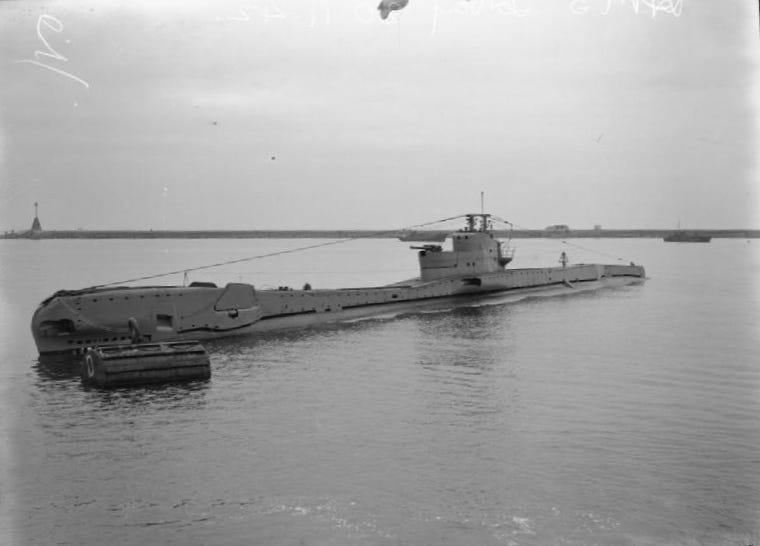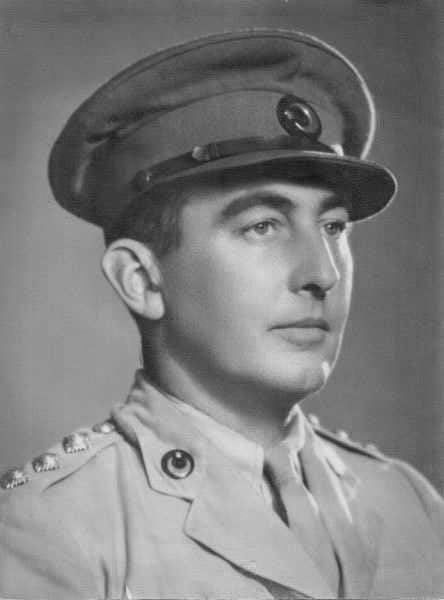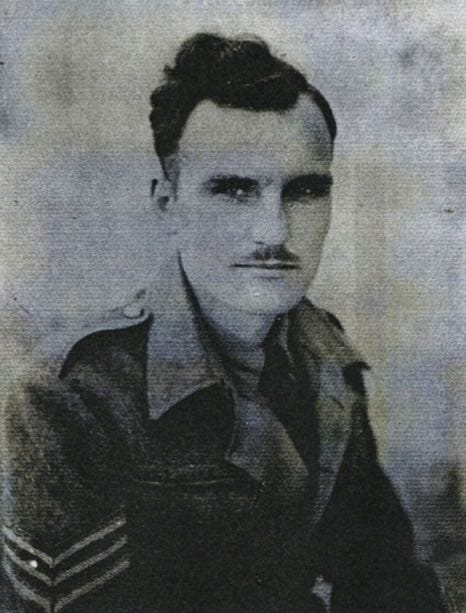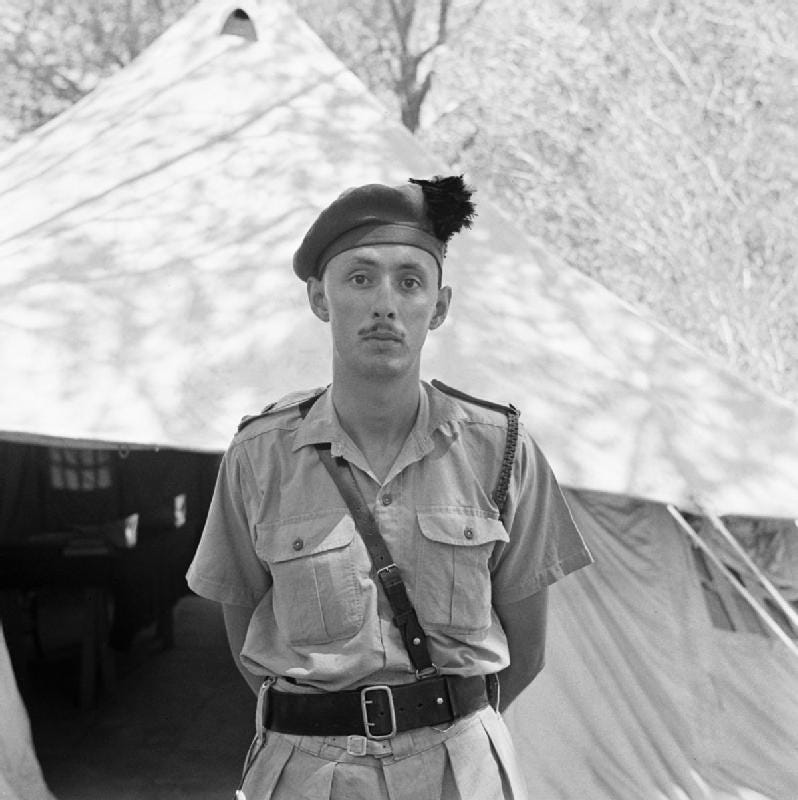Commandos attempt to capture Rommel
17th November 1941: Operation Flipper - a pioneering behind the lines operation by the Commandos
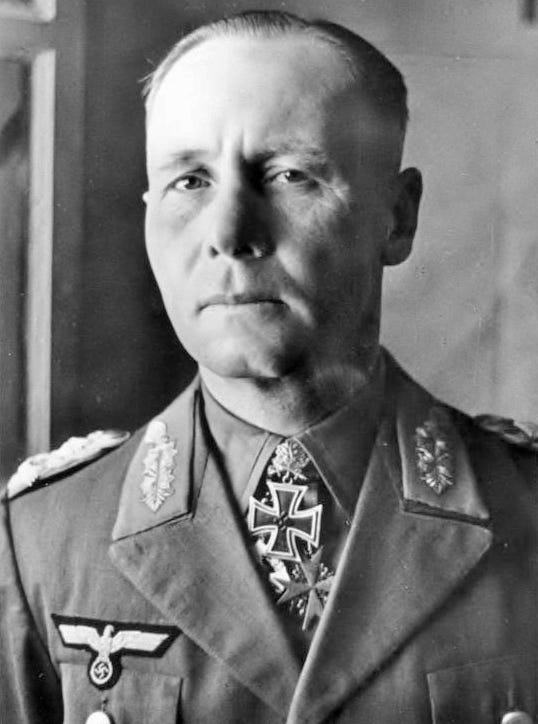
On the eve of the new British offensive in North Africa a Commando unit landed far behind enemy lines in Libya in a daring raid to capture the German commander, General Erwin Rommel.
This was a pioneering operation by the Commando's, even though unsuccessful it helped establish their reputation for audacious, behind the lines attacks. The operation proceeded despite being dogged by very bad weather.
Rough seas meant that only a small part of the intended force was able to land from the submarines that took them to a secret rendezvous on the coast. They then spent two nights moving inland, hiding in caves by day, travelling to the Germans base where it was believed that Rommel resided.
Preparation for the raid was largely due to the behind the lines reconnaissance of Captain Jock Haselden, an Intelligence Officer attached to 8th Army HQ, He was awarded an MC for his work:
Capt. Haselden was landed from a submarine behind the enemy's lines on Oct. 10th 1941 to reconnoiter for a possible operation in conjunction with local Arabs. In order to decrease the risk to the boat crew, this officer swam ashore in the dark and, after reconnoitering, signaled that it was safe for the boat to come ashore. He remained in enemy territory until picked up by one of our patrols at a given rendezvous on 19 October (R-Patrol under Capt. Jake Easonsmith).
During this period, in which he was in constant danger of being arrested and shot, he collected valuable information both regarding the local Arabs and the movement of enemy troops. The success of the reconnaissance was largely due to the high degree of courage, determination and clear-thinking possessed by this officer
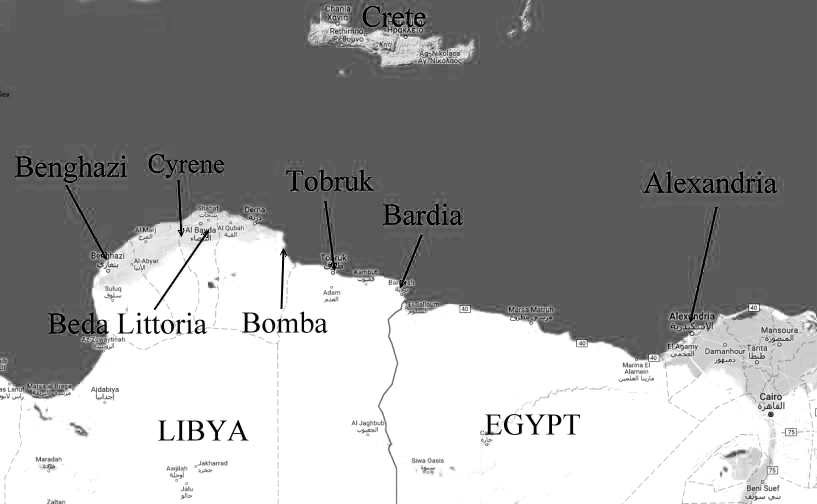
Sergeant Frederick Birch1 was with a small group sent to destroy the communications on the route to Rommel’s house.
Tried to strike other but matchbox wet, then tried to explode it with Grenade, first one a misfire, second one exploded but charge did not explode, Gornall asked me could we use an Incendiary Bomb, it was a very good idea.
At 3-10am we arrived at telegraph pole which was objective, scouted round, no sentry or police post around, decided to lay charge of plastic right away, pole consisted of 4 poles of same thickness from base to top, strengthened with crosspieces of same thickness, and wires running north, south, east and west. Laid charges on each pole, Joined together by cordtex and attached to two 12 inch lengths of Match-Head. Bickfords struck one and retired to bushes, Misfired, fuse wet. Tried to strike other but matchbox wet, then tried to explode it with Grenade, first one a misfire, second one exploded but charge did not explode, Gornall asked me could we use an Incendiary Bomb, it was a very good idea. Lt. Cooke and I went back to poles, attached 2 new lengths of Bickford Fuse and Detonator to Cordtex, and struck Incendiary on stone and laid it on the Fuse and retired, we had only gone 5 yards when the Incendiary burst out and the whole place was lit up over an area of about 200 yards diameter, on reaching the low bushes about 150 yards away, we threw ourselves down and after 60 seconds the charge went off and we heard wires dropping on the road, we knew the Job was done.
…
… we struck across country again in a North-Westerly Direction we kept on going until 7-0am it was now broad daylight. I was absolutely exhausted and could hardly stand up let alone struggle through the small bushes which stand waist high, the others were in a similar condition and we decided to halt and hide up for the rest of the day, on looking around we found there were a number of tombs around and soon found one we could crawl into, it was a small opening with a low roof, but when we got inside we found it opened onto 4 chambers which you can stand up in, the rain stopped about 5 30am but of course we were still wringing wet we took off our equipment and B. D. Jackets, and took Wallets, Note Books, Maps and other sundry things out of our pockets and spread them out to dry we partook of some chocolate and raisins and few sweets for breakfast then we made futile attempts to get warm, then we all set about cleaning our weapons, I then repaired Lt. Cookes’ 45 auto colt.
They would have an uncomfortable 24 hours on the run, before the Italians found the cave they were hiding in, possibly tipped off by local Arabs. After suffering wounds from a number of grenades tossed into the cave they were forced to surrender
Meanwhile another group sought to find Rommel.
Unfortunately the intelligence was wrong and Rommel was actually in Italy at the time - a fact not discovered until after the raid.
Geoffrey Keyes, at 24 the youngest Lieutenant-Colonel (albeit Temporary) in the British Army at the time, won the Victoria Cross2 for his leading role in the raid:
Lieutenant-Colonel Keyes commanded a detachment of a force which landed some 250 miles behind the enemy lines to attack Headquarters, Base Installations and Communications.
From the outset Lieutenant-Colonel Keyes deliberately selected for himself the command of the detachment detailed to attack what was undoubtedly the most hazardous of these objectives—the residence and Headquarters of the General Officer Commanding the German forces in North Africa. This attack, even if initially successful, meant almost certain death for those who took part in it.
He led his detachment without guides, in dangerous and precipitous country and in pitch darkness, and maintained by his stolid determination and powers of leadership the morale of the detachment.
He then found himself forced to modify his original plans in the light of fresh information elicited from neighbouring Arabs, and was left with only one officer and an N.C.O. with whom to break into General Rommel's residence and deal with the guards and Headquarters Staff.
At zero hour on the night of 17th-18th November, 1941, having despatched the covering party to block the approaches to the house, he himself with the two others crawled forward past the guards, through the surrounding fence and so up to the house itself.
Without hesitation, he boldly led his party up to the front door, beat on the door and demanded entrance.
Unfortunately, when the door was opened, it was found impossible to overcome the sentry silently, and it was necessary to shoot him. The noise of the shot naturally aroused the inmates of the house and Lieutenant-Colonel Keyes, appreciating that speed was now of the utmost importance, posted the N.C.O. at the foot of the stairs to prevent interference from the floor above.
Lieutenant-Colonel Keyes, who instinctively took the lead, emptied his revolver with great success into the first room and was followed by the other officer who threw a grenade.
Lieutenant-Colonel Keyes with great daring then entered the second room on the ground floor but was shot almost immediately on flinging open the door and fell back into the passage mortally wounded. On being carried outside by his companions he died within a few minutes.
By his fearless disregard of the great dangers which he ran and of which he was fully aware, and by his magnificent leadership and outstanding gallantry, Lieutenant-Colonel Keyes set an example of supreme self sacrifice and devotion to duty.
http://www.commandoveterans.org/sites/www.commandoveterans.org/files/Rommel%20Raid_0.pdf
"No. 35600". The London Gazette (Supplement). 19 June 1942. p. 2699.


